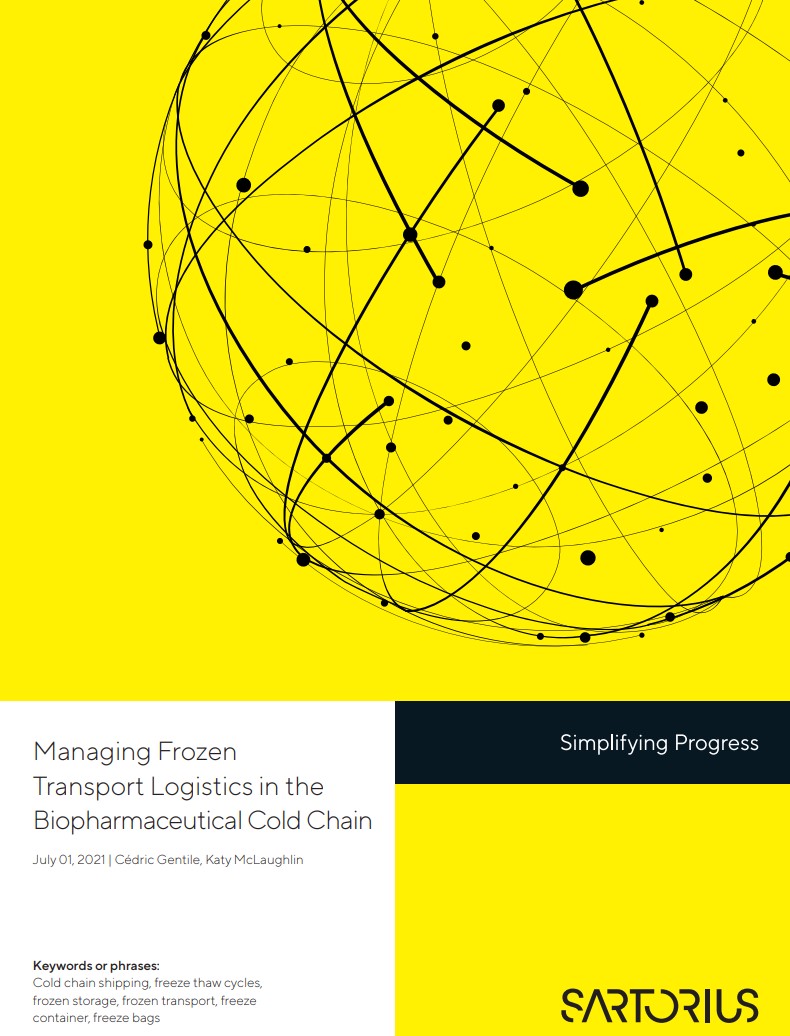- Sponsored Content
- Downstream Processing
Managing Frozen Transport Logistics in the Biopharmaceutical Cold Chain
September 14, 2021

Sponsored by Sartorius
The enormous task of establishing a reliable infrastructure to supply COVID-19 vaccines across the globe has thrust cold chain shipping and its associated challenges into the spotlight. Valuable biologics, such as vaccines and recombinant therapeutic proteins, are often kept in a frozen state during storage and shipping. This requires robust solutions to ensure temperatures do not fluctuate and product integrity is preserved. As biopharmaceutical manufacturing grows increasingly global, the production and transport networks required to keep operations running smoothly become more complex. Supply chains are further complicated by the trend towards decentralized production processes and the use of external contract manufacturing organizations (CMOs). The deviations associated with a complex production network can place strain on the frozen transport network. Sartorius has extensive experience in designing and delivering innovative freeze|thaw solutions for the bioprocessing industry. Here, the authors provide a framework for making challenging decisions linked to cold chain management before outlining potential solutions that could solve many of the issues surrounding the frozen transfer of biopharmaceuticals. Download this whitepaper to understand the importance of a robust biopharmaceutical cold chain and discover the unique solutions you need to ensure the security of your biologic. Explore the logistical challenges involved in cold chain transport and learn how to overcome them. Learn the critical drivers for solution selection by biologic, developmental phase, and operations. Optimize your frozen transport logistics with our strategies for reliable decision-making.
Click here to download this white paper.
About the Author(s)
You May Also Like





